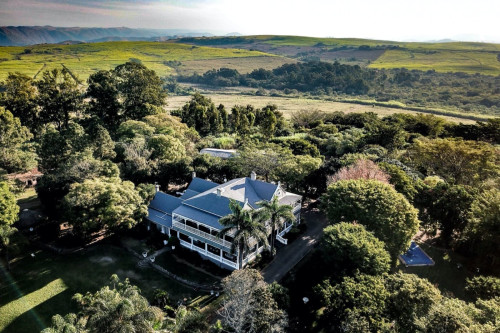
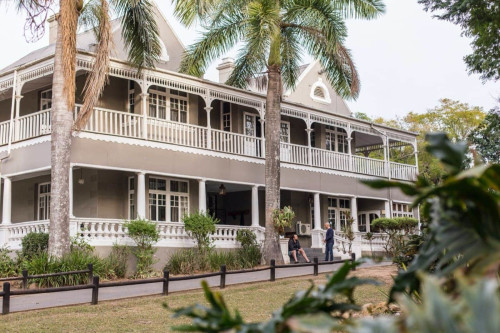





Cedars South Coast Estate
Treatment Focus
This center primarily treats substance use disorders, helping you stabilize, create relapse-prevention plans, and connect to compassionate support.
Primary Level of Care
Offering intensive care with 24/7 monitoring, residential treatment is typically 30 days and can cover multiple levels of care. Length can range from 14 to 90 days typically.
Claimed
Recovery.com has connected directly with this treatment provider to validate the information in their profile.
Treatment Focus
This center primarily treats substance use disorders, helping you stabilize, create relapse-prevention plans, and connect to compassionate support.
Primary Level of Care
Offering intensive care with 24/7 monitoring, residential treatment is typically 30 days and can cover multiple levels of care. Length can range from 14 to 90 days typically.
Private Pay
You pay directly for treatment out of pocket. This approach can offer enhanced privacy and flexibility, without involving insurance. Exact costs vary based on program and length of stay. Contact the center for specific details.
Cedars South Coast Estate
Cedars South Coast Estate
About Cedars South Coast Estate
Rooted in 12-Step
Keith Wilkes, founder of The Cedars, has spent 36 years in sobriety within the addiction service industry. The experience helped form his vision of a 12-Step based, multi-disciplinary approach to addiction treatment that would impact the lives of the clients and their families. The Cedars was born in 2002 and is a group of boutique addiction and mental health facilities throughout South Africa. Each location is has a tranquil environment staffed by a team of experts. The Cedars' program focuses strongly on 12-Step facilitation and relapse prevention and provides unparalleled individual, group, and family support. The Cedars also provides chef-prepared healthy meals, a personal trainer and yoga instructor, and fun activities that can include boat excursions, hikes, and beach trips. One of the unique excursions includes an Ocean safari that frequently features sightings of dolphins and humpback whales. Snorkeling expeditions can also be arrange along with spectacular hiking for people of all fitness levels.
A Tranquil Environment
The Cedars offers 3 unique facilities throughout South Africa. Each home provides extensive grounds, absolute comfort, security, and an array of on-site activities. At The Cedars, guests will enjoy the bespoke feel of a luxury hotel with large-well appointed bedrooms, an outdoor swimming pool, manicured gardens, gym equipment, and a dedicated shuttle service. The Cedars addiction treatment center understands the essence and need for peace while maintaining long-lasting recovery.
Aftercare
The Cedars South Coast Estate aids clients in preparing for discharge through relapse prevention planning and connecting them to local resources. Their in-depth planning helps clients prepare to continue their recovery journey by helping them to integrate into 12-Step support groups, find sponsorship, and connecting to the alumni support group. The counselors at Cedars South Coast Estate continue to provide support to their clients until they find a sponsor.
Insurance
The Cedars South Coast Estate works with South African Medical Aid to cover the cost of addiction and substance abuse treatment. If a client does not have South African insurance coverage, The Cedars can help explore other options. They believe that in the end, addiction always costs more than treatment.
Center Overview
Treatment Focus
This center primarily treats substance use disorders, helping you stabilize, create relapse-prevention plans, and connect to compassionate support.
Pricing and Program Length
Estimated Center Costs
The cost listed here (£7,000 GBP+ / 28 days), is an estimate of program cost. Center price can vary based on program and length of stay. Contact the center for more information. Recovery.com strives for price transparency so you can make an informed decision.
Luxury rehab centers offer a unique blend of luxurious amenities and high-quality treatment. From private suites to gourmet dining, personal trainers to spa treatments, these facilities provide a high level of comfort and discretion.

Meet Your Care Team

Dr Mark McDonogh
Medical Doctor

Casidy Atkins
Clinical Supervisor and Addiction Counsellor

Mbali Mokganya
Social Worker

Stellio Coutsides
Addiction Counsellor
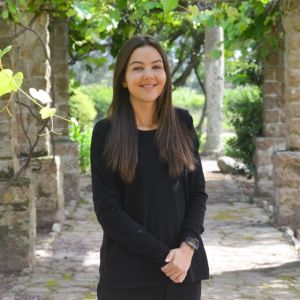
Monique Kurczewski
Family Liaison
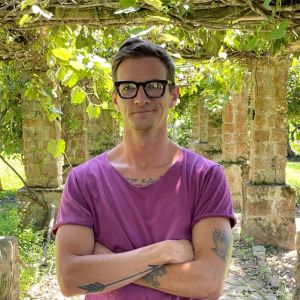
James Copland
Trainee Addiction Counsellor
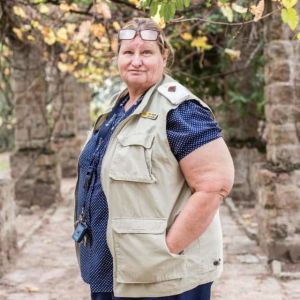
Mary Allison
Senior Enrolled Nurse
Levels of Care





Your Care Options
Specializations
Drug Addiction
Drug addiction is the excessive and repetitive use of substances, despite harmful consequences to a person's life, health, and relationships.
Prescription Drugs
It's possible to abuse any drug, even prescribed ones. If you crave a medication, or regularly take it more than directed, you may have an addiction.
Residential
In a residential rehab program, patients live onsite, with access to daily treatment and 24-hour care. An average stay is 30-90 days.
Twelve Step
Incorporating spirituality, community, and responsibility, 12-Step philosophies prioritize the guidance of a Higher Power and a continuation of 12-Step practices.
Who We Treat
Men and Women
Men and women attend treatment for addiction in a co-ed setting, going to therapy groups together to share experiences, struggles, and successes.
Professionals
Busy, high-ranking professionals get the personalized treatment they need with greater accommodations for work, privacy, and outside communication.
Approaches
Family Involvement
Providers involve family in the treatment of their loved one through family therapy, visits, or both–because addiction is a family disease.
Personalized Treatment
The specific needs, histories, and conditions of individual patients receive personalized, highly relevant care throughout their recovery journey.
Twelve Step
Incorporating spirituality, community, and responsibility, 12-Step philosophies prioritize the guidance of a Higher Power and a continuation of 12-Step practices.
Therapies
1-on-1 Counseling
Patient and therapist meet 1-on-1 to work through difficult emotions and behavioral challenges in a personal, private setting.
Meditation & Mindfulness
A practiced state of mind that brings patients to the present. It allows them to become fully aware of themselves, their feelings, and the present moment.
Mindfulness Therapy
This ancient practice can be mental, emotional, and even spiritual. In meditation, you focus your attention on the present moment without judgement.
Family Therapy
Family therapy addresses group dynamics within a family system, with a focus on improving communication and interrupting unhealthy relationship patterns.
Life Skills
Teaching life skills like cooking, cleaning, clear communication, and even basic math provides a strong foundation for continued recovery.
Medication-Assisted Treatment
Combined with behavioral therapy, prescribed medications can enhance treatment by relieving withdrawal symptoms and focus patients on their recovery.
Psychoeducation
This method combines treatment with education, teaching patients about different paths toward recovery. This empowers them to make more effective decisions.
Conditions We Treat
Gambling
Excessive, repetitive gambling causes financial and interpersonal problems. This addiction can interfere with work, friendships, and familial relationships.
Gaming
Compulsive gaming is most often a problem for children and teens. The disorder can affect physical health, sleep, and the ability to focus at school.
Internet Addiction
Internet addiction is common among children teens. This compulsive disorder can damage relationships, school performance, sleep habits, and physical health.
Sex Addiction
Compulsively seeking out sex can easily become a problem. This addiction is detrimental to relationships, physical health, and self-esteem.
Substances We Treat
Alcohol
Using alcohol as a coping mechanism, or drinking excessively throughout the week, signals an alcohol use disorder.
Benzodiazepines
Benzodiazepines are prescribed to treat anxiety and sleep issues. They are highly habit forming, and their abuse can cause mood changes and poor judgement.
Cocaine
Cocaine is a stimulant with euphoric effects. Agitation, muscle ticks, psychosis, and heart issues are common symptoms of cocaine abuse.
Drug Addiction
Drug addiction is the excessive and repetitive use of substances, despite harmful consequences to a person's life, health, and relationships.
Ecstasy
Ecstasy is a stimulant that causes intense euphoria and heightened awareness. Abuse of this drug can trigger depression, insomnia, and memory problems.
Heroin
Heroin is a highly addictive and illegal opioid. It can cause insomnia, collapsed veins, heart issues, and additional mental health issues.
Psychedelics
Hallucinogenic drugs—like LSD—cause euphoria and increased sensory experiences. When abused, they can lead to depression and psychosis.
Methamphetamine
Methamphetamine, or meth, increases energy, agitation, and paranoia. Long-term use can result in severe physical and mental health issues.
Languages
Aftercare
Care Designed for Your Needs
Personal Amenities
Amenities
Special Considerations
Flexible technology policies
Centers with flexible technology policies allow professionals to stay in touch with work and give patients a greater sense of connection and normalcy.
Gender-specific groups
Patients in gender-specific groups gain the opportunity to discuss challenges unique to their gender in a comfortable, safe setting conducive to healing.
Healthy Meals are provided
Great food meets great treatment, with providers serving healthy meals to restore nutrition, wellbeing, and health.
Activities
Yoga
Yoga is both a physical and spiritual practice. It includes a flow of movement, breathing techniques, and meditation.
Off-Site Activities
Off-Site Amenities
What people are saying
Treatment
4.1
Accommodations
3.4
Food & Nutrition
3.8
Value
4.1
Pros
- Excellent & Effective Treatment Programming (4)
- Friendly & Competent Staff (3)
- Fun Activities (3)
- Access to Nature (3)
Byron
Treatment in 2021 • (90 days) • Reviewed 08/26/23
Former Client
•Commercial Driver
Brian
Treatment in 2021 • (90 days) • Reviewed 09/06/25
Former Client
•Small business owner
•Zimbabwe
Cedars South Coast Estate
Tina
Treatment in 2021 • (180+ days) • Reviewed 07/03/23
Former Client
•Sales
•Durban
SR
Treatment in 2021 • (90 days) • Reviewed 08/30/23
Former Client
•Operations Manager
Adam
Treatment in 2019 • (90 days) • Reviewed 08/18/23
Former Client
•Aerospace






